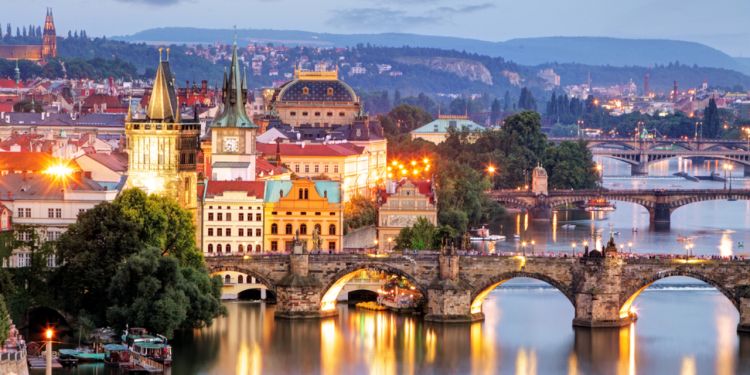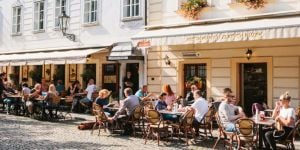
Prague and the Czech Republic is considered as the heart of Europe. Have you just relocated to the city? Or do you plan to move here? This article will give you the necessary information which can help you in the beginnings of your new life chapter. Let's talk about things which you can expect from the country and people. Is it expensive to live there? Basic overview of the cost of living will be mentioned in this article.
First feelings after the touchdown
The Czech Republic is getting more popular, and many expats choose Prague as their new home. The city cannot be compared to multicultural capitals like London or Berlin, but it is on the right way. You do not need to be scared of living in Prague. English is quite common amongst educated and young people, and you will find many places where to meet other expats and make new friends.
The climate in Prague is typically temperate with cold winters and dry summers. December – February are the coldest months of the year with average temperatures around 0 °C, occasionally temperatures decrease to -10 °C. Other parts of the Czech Republic have a colder climate and better snow conditions than Prague. Summers in the city are hot and dry, with climatic changes it gets worse. The period between June – August is the hottest. Average temperatures are around 25 °C, but they can reach up to 35 °C. The air conditions are common in the offices, restaurant, and hotels, but not in the apartments.
If you just landed, do not forget to exchange money. Euro is not the official currency, and it is not accepted outside the touristic area. You can find good exchange offices in Jindřišská street, or in Kaprova. Mastercards and Visa are accepted in supermarkets, hotels, and shopping malls. Most of the restaurants accept credit cards too, but not all of them. It is always better to have some cash with you. Do not expect that shop assistants in the supermarket will speak in English, if needed, ask somebody around to help. Focus on young generation under 40, as those people mostly speak English very well and are happy to help.
Bust any myths about the Czech Republic
Touristic guides say that Prague can be dangerous, and it is full of pickpockets – especially trams. This is still true, but there's nothing major to worry about. There is a slight crime rate in the city, but compared to other cities, it is a very safe place to live in. Just be careful with your belongings and do not let them out of sight. Also, districts like around Palmovka, Žižkov, or Karlín are safe to live in.
Be careful with small talks; Czechs are direct and honest people. To a simple question like “how are you?”, you can get a reply that everything is wrong and terrible. Foreigners tend to bumble around for conversation topics, while the Czechs dive straight into their concerns. People tend to complain, and they are not shy to say their opinion.
The cost of living in Prague
Prague's prices are getting closer to the prices in other European capitals, even though the average salaries in the city do not. If you live alone, it can be hard to pay bills and have a good quality of life. In case you do not have a partner, think about a flat sharing in the beginning.
The average gross salary in Prague will be around 35,000 – 60,000 CZK – depending on the job. Top managers can earn between 80,000 – 200,000 CZK brutto per month. How much is the net salary? Taxation is 15 % (from super gross salary), social insurance 6,5 % and medical insurance 4,5 %. Use the calculator to get the net pay.
Rent prices start around 8,000 CZK per month, and that of a flat is at least 13,000 CZK. Additional charges can be around 2,000 – 4,000 CZK for two people. Check the article about renting options in Prague to get more information on this topic. Food is another significant item of the budget, especially when eating in restaurants. The cheap restaurants offer a lunch menu for 130 – 150 CZK. Moderately priced restaurants charge around 250 CZK per meal. Homemade cooking can save you a lot of money.
Education is for free in the Czech Republic, if you study public schools and choose a study program in the Czech language. English programs and private schools are eligible for tuition fee. Student life in Prague is cheaper, as you can live in the hall of residence and eat in the school canteen.
We do our best to provide accurate and up to date information. However, if you have noticed any inaccuracies in this article, please let us know in the comments section below.








